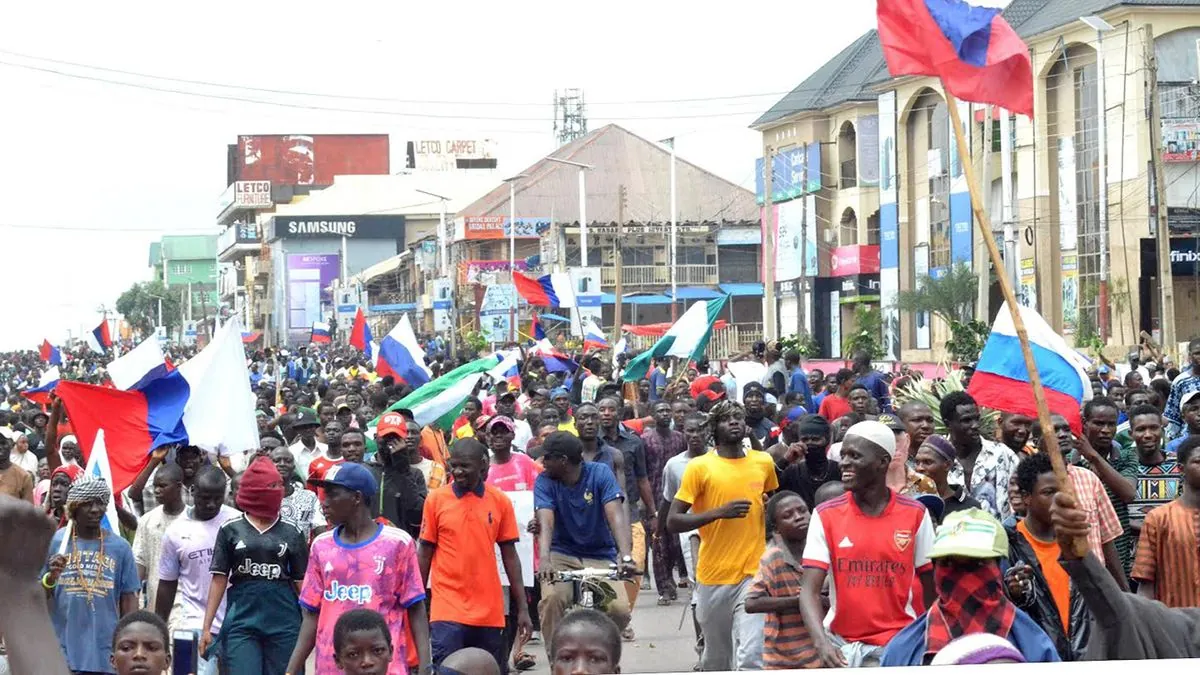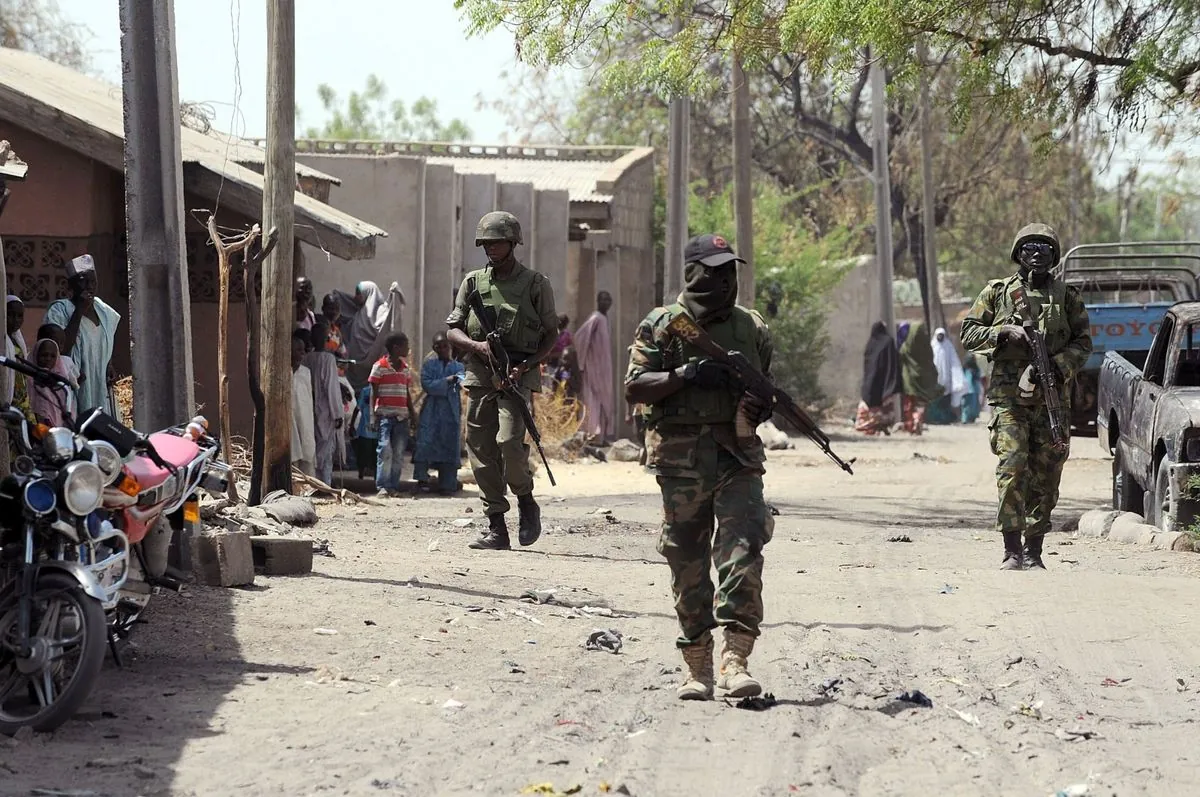Nigeria Detains Tailors for Making Russian Flags Used in Protests
Nigerian authorities have detained tailors for creating Russian flags used in anti-government protests. The move highlights concerns about Russian influence in West Africa amid economic unrest.

In a recent development, Nigerian authorities have apprehended tailors for producing Russian flags utilized during anti-government demonstrations in the country's northern regions. This action underscores growing apprehensions regarding increased Russian presence in West Africa.
The Department of State Services (DSS), Nigeria's primary domestic intelligence agency, announced the detentions via social media platform X. The agency also stated that some "sponsors" of the tailors were in custody, without providing further details. An investigation is currently underway, though the exact number of detainees remains undisclosed.
General Christopher Musa, Nigeria's Chief of Defence Staff, characterized the display of foreign flags during protests as a "treasonable offence" following security discussions with President Bola Tinubu. Musa assured that serious action would be taken against those responsible for sponsoring such activities.

The protests, which began on August 1, 2024, were sparked by President Tinubu's economic reforms. These measures include partial removal of fuel and electricity subsidies, currency devaluation, and have resulted in inflation reaching three-decade highs. Demonstrations have since subsided following a police crackdown.
In the northern states of Borno, Kaduna, Kano, and Katsina, protesters were observed waving Russian flags, with some calling for military intervention. A 28-year-old protester in Kano explained, "We are waving the Russian flag because Tinubu's government is not listening to us. Russian presidents always support African nations' development, unlike other nations."
The Russian embassy in Nigeria has denied any involvement in these activities, stating that neither the Russian government nor its officials coordinate such actions.
"The Government of the Russian Federation as well as any Russian officials are not involved in these activities and do not coordinate them in any way."
Security experts suggest that the protesters' actions reflect discontent with government policies rather than support for a Russia-backed military government. The use of Russian flags and calls for military intervention are seen as expressions of frustration with reforms perceived as dictated by Western institutions like the International Monetary Fund and World Bank.
This incident occurs against a backdrop of increasing Western concerns about Russian security ties in the region, particularly in countries such as Mali, Burkina Faso, and Niger, where military coups have recently taken place.
As Africa's most populous nation and largest economy by nominal GDP, Nigeria's stability is crucial for the region. The country's complex political landscape, with over 250 ethnic groups and a history of military rule, adds to the challenges faced by the current administration in implementing economic reforms.


































